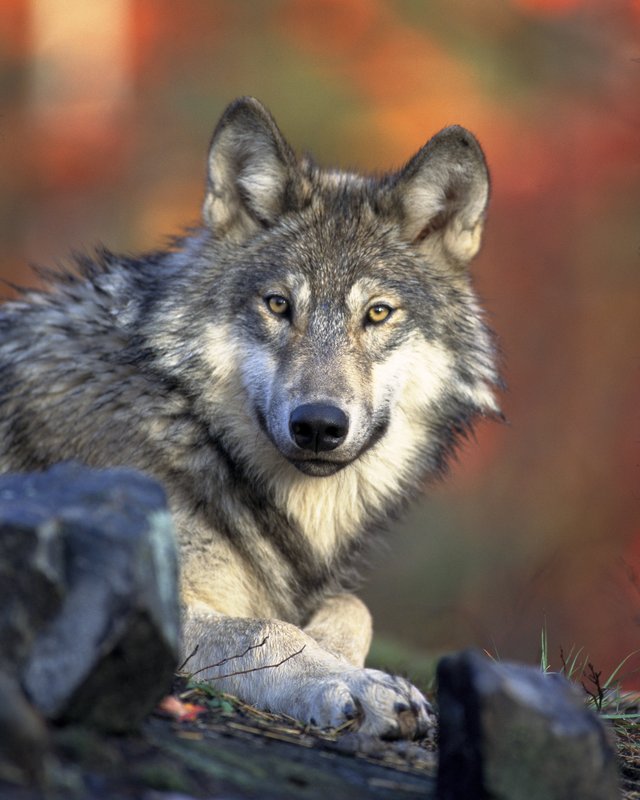For Immediate Release, August 5, 2025
|
Contact: |
Collette Adkins, Center for Biological Diversity, (651) 955-3821, [email protected] |
Northern Rocky Mountain Wolves Get Another Shot at Protections
Federal Judge Says Fish and Wildlife Service Must Reconsider Protections Denial
MISSOULA, Mont.— A federal judge in Montana ruled today that the U.S. Fish and Wildlife Service broke the law last year when it denied a petition to protect gray wolves in the northern Rocky Mountains under the Endangered Species Act. The agency must now reconsider whether to grant protections to wolves living in Idaho, Montana and Wyoming, along with portions of Washington, Oregon and Utah.
The ruling comes in response to a lawsuit filed last year by the four conservation and animal protection groups who authored and submitted the petition in 2021: the Center for Biological Diversity, Humane World for Animals (formerly called the Humane Society of the United States), Humane World Action Fund (formerly called Humane Society Legislative Fund) and the Sierra Club.
“With this court ruling comes the hope of true recovery for wolves across the West,” said Collette Adkins, carnivore conservation director at the Center for Biological Diversity. “The judge rightly found that the Fish and Wildlife Service’s unambitious view of recovery violates the Endangered Species Act. Recovery requires that wolves return to places like the vast southern Rockies, where they once lived. They can thrive there if they have the lifesaving protections of the Endangered Species Act.”
Today’s ruling from U.S. District Judge Donald Molloy faulted the government for disregarding the potential for wolf recovery across Colorado and the rest of the southern Rocky Mountains including most of Utah, northern New Mexico and northern Arizona.
Molloy found that the Endangered Species Act requires the Service to consider the southern Rocky Mountains region and other portions of the wolves’ historic range. He also concluded that the agency unlawfully disregarded the potential importance of the wolf’s fledgling return to Colorado, through natural dispersal and historic reintroductions, when the agency denied the petition.
“Wolves are deeply intelligent, social animals who play an irreplaceable role in the ecosystems they call home,” said Kitty Block, president and CEO of Humane World for Animals. “Today’s ruling offers hope that we can restore protections to wolves in the northern Rockies, but only if the federal government fulfills its duty under the Endangered Species Act. These animals deserve protection, not abandonment, as they fight to return to the landscapes they once roamed freely.”
“Gray wolf recovery is at a crossroads in the western United States, so they should not be relegated to the crosshairs of the killing campaigns that pushed them to the brink of extinction," said Sara Amundson, president of Humane World Action Fund. “The Fish and Wildlife Service’s attempts to deny these animals much-needed federal protection betrays not only the letter of the law, but countless Americans who want to see wolves protected."
The Endangered Species Act petition submitted by the conservation groups was filed amid escalating hostility toward wolves in several northern Rockies states.
In Idaho, recent changes to state law allows the state to hire private contractors to kill wolves, lets hunters purchase unlimited wolf-killing tags and allows them to kill wolves by chasing them with hounds or all-terrain vehicles. Idaho and Montana allow bounties to be paid as “reimbursements” for dead wolves.
In Montana, state law allows wolves to be killed by bait and strangulation snares and recently proposed regulations, if finalized, would allow a single hunter to kill 15 wolves and trap an additional 15.
In Wyoming wolves are designated as “predatory animals” and can be killed without a license in nearly any manner at any time. Hunters in Wyoming have killed several wolves just a few miles from the border with Colorado, where wolves are finally returning to the state through dispersals and restoration efforts.
“Wolf recovery is dependent on responsible management by the states, and Idaho, Montana and Wyoming have shown that they’re grossly unsuited to manage the species,” said Nick Gevock, Sierra Club northern Rockies campaign strategist. “Judge Molloy’s ruling means now the Fish and Wildlife Service must go back to the drawing board to determine whether federal management is needed to ensure wolves survive and play their vital role in the ecosystem.”
Today’s ruling vacates the Service’s denial of the petition, and the agency must now reconsider its response. The agency has 60 days to appeal the decision.
The plaintiffs in the lawsuit are represented by attorneys at the Center for Biological Diversity and Humane World for Animals’ Animal Protection Law department.

The Center for Biological Diversity is a national, nonprofit conservation organization with more than 1.8 million members and online activists dedicated to the protection of endangered species and wild places.
For over 70 years, the Humane World family has worked to tackle the root causes of animal cruelty and suffering to permanent change. Formerly called the Humane Society of the United States, Humane Society International and Humane Society Legislative Fund, we operate in over 50 countries with millions of supporters. Through advocacy, policy change, public education and direct care, we work to end the cruelest practices, care for animals in crisis and build a stronger animal protection movement. Together, we are creating a humane world.
humaneworld.org humaneaction.org
The Sierra Club is America’s largest and most influential grassroots environmental organization, with millions of members and supporters. In addition to protecting every person's right to get outdoors and access the healing power of nature, the Sierra Club works to promote clean energy, safeguard the health of our communities, protect wildlife, and preserve our remaining wild places through grassroots activism, public education, lobbying, and legal action. For more information, visit www.sierraclub.org.

